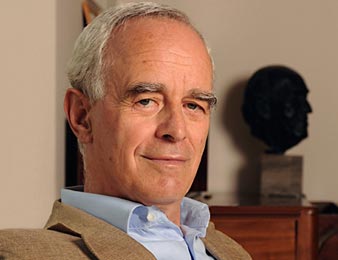This website uses cookies so that we can provide you with the best user experience possible. Cookie information is stored in your browser and performs functions such as recognising you when you return to our website and helping our team to understand which sections of the website you find most interesting and useful.

Nonlocal Consciousness
In February 2014, a group of internationally known scientists from a variety of scientific fields (biology, neuroscience, psychology, medicine, psychiatry) participated in a summit on post-materialist science. Co-organized by Gary E. Schwartz, PhD and Mario Beauregard, PhD, of the University of Arizona, and Lisa Miller, PhD, of Columbia University, the summit was held at Canyon Ranch in Tucson, Arizona. The purpose was to discuss the impact of the prevailing mechanistic-materialist ideology within science and the emergence of a post-materialist paradigm for science, spirituality, and society. The resulting Manifesto for a Post-Materialist Science was published in Explore [2014; 10 (5): 272-274] and on the Open Sciences website, which also resulted from the summit (http://opensciences.org/about/manifesto-for-a-post-materialist-science).

In September 2015, a second meeting was held in Tucson, called The Final Transition Conference. Organized by consciousness researcher Stephan A. Schwartz, the purpose of the meeting was to explore the questions: What happens when we die, and what constitutes humane, decent care of the dying? The conference faculty was composed of therapists, clinicians, scholars, and researchers from the US and Europe, all of whom are involved in various ways in end-of-life care. It became clear that an exclusively materialist view of consciousness — the notion that consciousness is produced by the brain and is annihilated with physical death — cannot account for the rich, variegated experiences that surround the dying brain and body, and that a post-materialist science is required. A key feature of a post-materialist approach is that of nonlocal consciousness, in which consciousness is not considered to be localized or confined to specific points in space, such as the physical brain and body, nor to specific points in time, such as the present.
The following Declaration for Integrative, Evidence-Based, End-of-Life Care that Incorporates Nonlocal Consciousness emerged from The Final Transition Conference. It was drafted by Stephan A. Schwartz and Gary E. Schwartz (no familial relationship). This Declaration represents a consensus view of the undersigned faculty of The Final Transition Conference and others.
This Declaration is an application and extension of the 2014 Manifesto for a Post-Material Science to the greatest issues anyone faces: the origin, destiny, and nature of human consciousness, and how these considerations affect the care of humans at the end of life.



